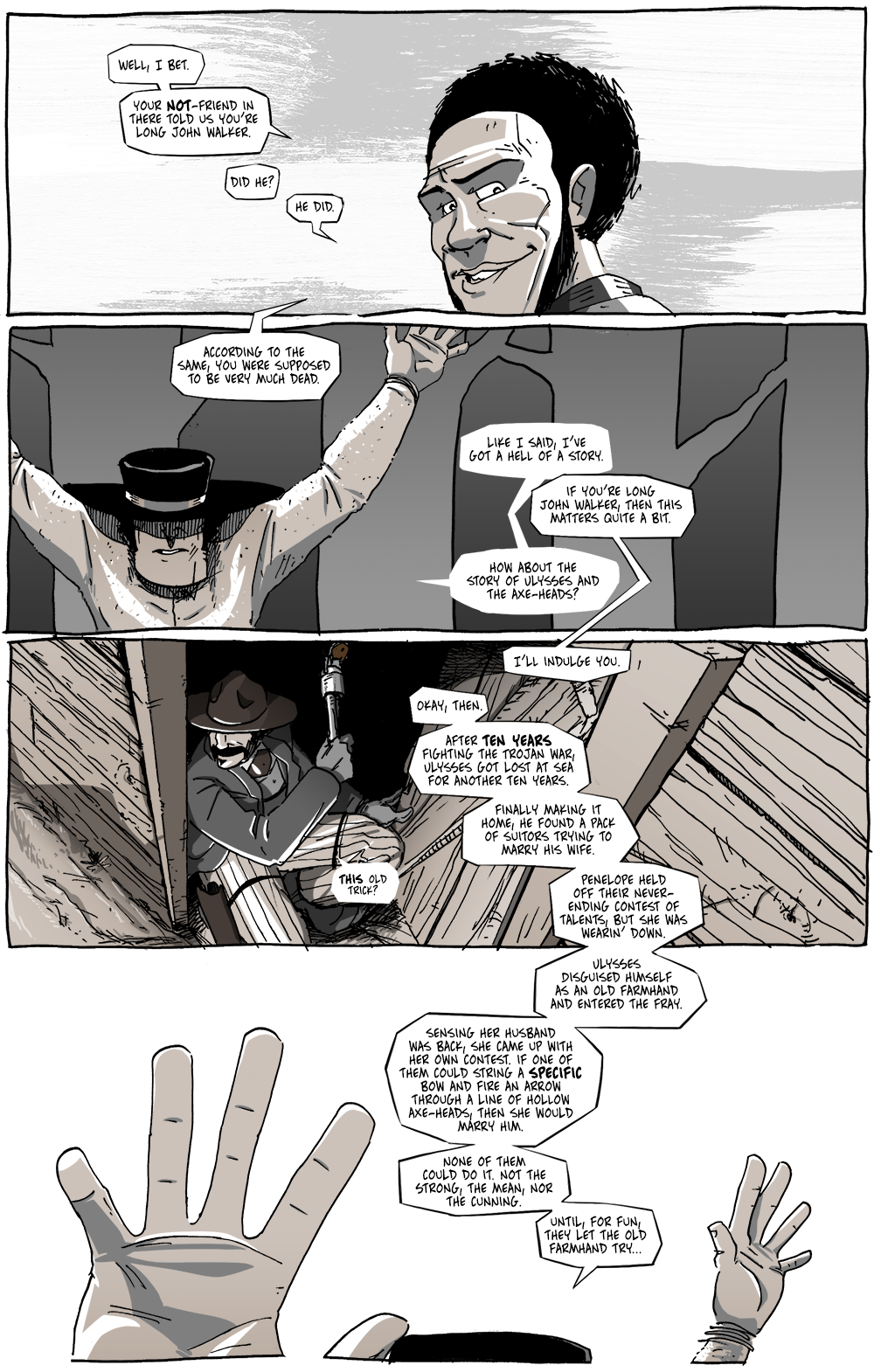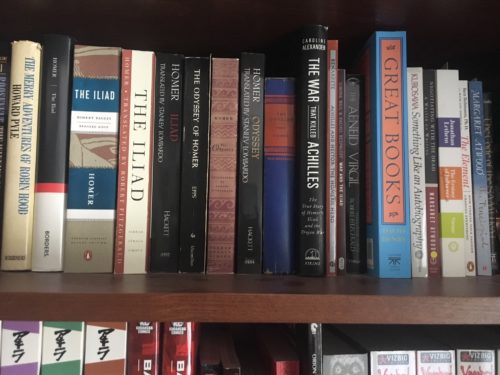The Ulysses Maneuver
I’m a classicist in the literary sense. When pursuing graduate degrees, my deep heart yearned to get a PhD in Homeric studies as I love The Iliad (most) and The Odyssey. I just don’t read nor speak Greek, which is a severe detriment to achieving that goal. However, I still hold those texts close to my heart.
In my classes, I talk about one of the keys to doing well in academic writing is to find a way to make every essay (in the case of what I’m teaching in my classes, but it is universally applicable) your own. Maybe it’s finding that personal angle on a topic. Maybe it’s seeing something that hasn’t been seen before. Those doorways are few and far between, however. Often it’s simply sliding an inside joke in there and knowing you were able to make it work within the context of a boring academic essay. For me, I did that in two ways. Every essay I tried to 1) title it after a favorite song and 2) slide a reference to The Iliad or The Odyssey in there.
While story of Odysseus and the axe-heads comes straight from The Odyssey, the story Long John tells went through a few iterations, though they were all Greek myth. This is one of our first real look into who Long John is beyond the “Man With No Name” exterior even though it’s hidden under the veneer of being a tactic Juan John will recognize. What it shows is that Long John––the deadly bounty hunter––seems to have some sort of classical education as well, or is well-read.
The bit of research I had to do was to make sure Long John called Odysseus by the right name. We call him Odysseus now because that’s the closest to the original Greek name for the character, but for a very long while (I want to say until the 20th century) the character was more popularly known as Ulysses, the Latin name the Romans gave him. So, by the time Long John was taking place, he would have still been called Ulysses and I didn’t want that to be anachronistic.
Sure, I could have had Long John tell any story because all it’s doing is signaling Juan to do a specific, previously successful (and often used) tactic from the time they were The Johns. But, being the nerd that I am, I wanted the story to also tell us about John Walker (and slide in a personal inside joke, too).




Discussion ¬